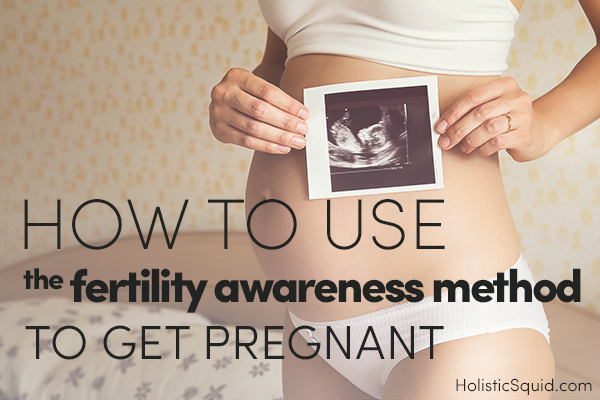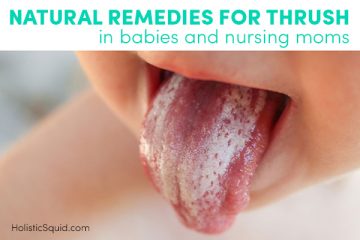

Some couples seem to glance at each other and end up with a bun in the oven. Others may focus on food to boost their fertility. But if you're trying to conceive, it’s super important to grasp the basics of how to get pregnant. This means getting familiar with the rhythms of your body and picking up tools like the fertility awareness method – which is a way to keep track of your fertility signs.
At its core, the fertility awareness method is about observing your body – a change in body temperature or a thickening of cervical fluid – so that you can either get pregnant when you want or simply get better acquainted with your reproductive health.
Checking your temperature or looking down to take a peek at your cervical fluid is a quick way to gauge where you're at in your cycle. Tools like the fertility awareness method can turn fun-and-tumble sex into successful baby-making with the least amount of stress. Which is the goal, right?
Make fertility awareness work for you
#1 – Know your cycle
When trying to get pregnant (or for natural birth control), timing sex at the right time of the month can often make all the difference.
Typically, ovulation takes place 14 days backwards from the last day of your cycle. In a consistent cycle, you can usually predict when the egg is being released. While most women with regular cycles will ovulate 14 days before flow, The American Pregnancy Association has found that ovulation can occur 12-16 days from when you expect the next menstrual period to start.
If your cycle is irregular or you just want to be sure, you can predict ovulation using one of the following:
- Track your basal body temperature (BBT) daily, first thing in the morning before getting out of bed. A slight rise (at least 0.4 degrees) indicates ovulation.
- Ovulation Predictor Kits (OPKs) test urine for a rise in hormones that precedes ovulation. These kits are available over the counter, and while they can be pricey and sometimes unreliable, they are still a quite useful tool.
- Monitor cervical fluid. Just prior to ovulation, cervical fluid takes on the consistency and color of raw egg whites. Some women notice this easily, while others find the change hard to detect.
- Check cervical position. With a little practice, you can check the position of the cervix to determine ovulation, when the cervix is very high up in the vagina and harder to reach than at other times during your cycle.
#2 – Have sex when you’re most fertile
While this should go without saying, there’s a few things that your mom probably didn’t teach you about the birds and bees…
Once you’ve determined your likely ovulation date, start having baby-making sex 5 days prior to the estimated day. Since an egg usually survives only 12 hours after being released, the fertility window ends less that a day after ovulation.
After ovulation, many women report a drop in libido and less natural lubrication. Sometimes sex is also uncomfortable. All your body’s way of telling you the baby-making window is now closed.
If you know or suspect that the future baby-daddy has sperm issues, it’s best to have sex every other day leading up to ovulation to allow sperm to regenerate.
#3 – Use the right lube
A woman’s cervical fluid is a perfectly designed medium in which sperm swim to their target – the egg.
If you need or prefer extra glide during sex, you may opt for using lubricants. Here’s the secret: most lubricants act as spermicides even if they are not advertised to kill sperm.
Luckily you can use egg white as a sperm-friendly, natural lubricant right out of the fridge.
For those looking for something less, um, culinary, there are several sperm-friendly lubricants on the market. Such as this one.
#4 – Manage your stress
Aside from poor diet, stress is the biggest contributor to modern health problems.
Have you heard of “fight or flight”? This is the part of your nervous system (the sympathetic nervous system) that gives you super-human powers if you are being chased by a saber-toothed tiger (or are in any other stressful situation).
The sympathetic nervous system can ask the body to perform out of the ordinary feats because it temporarily de-prioritizes normal body function, like digestion, sleep, and… reproduction. After all, why would you need to get pregnant if you are about to run for your life?
So, in our modern hustle-bustle, go-go-go world, it’s common for your nervous system to always be in a state of fight-or-flight, telling your reproductive system to take a nap. By reducing and managing your stress, you directly increase your likelihood of conception.
Here’s another simple fact: baby-making can be stressful.
One of the biggest challenges of trying to get pregnant is the stress that inevitably mounts if you don’t get pregnant right away. When couples are fixated on the process, fun and enjoyment is often drained out of sex.
Studies now suggest stress may be the culprit of infertility up to 30% of the time.
If stress seems to be getting the better of you in the baby-making process, it’s especially important that you take measures to chill out. Find some down-time, get some extra sleep, get a massage and/or acupuncture – whatever works for you.
#5 – Make every bite count
Prospective parents, it’s time to get healthy! Now’s your chance to finally quit smoking, stop binge drinking, and stop depending on sleep medications, caffeine and other chemicals you can do without. Start exercising, see a therapist to get over your issues with your mother-in-law, stop over-working, and start eating healthy.
Did you know what you eat up to 6 months before you conceive can affect your fertility, pregnancy, and health of your child?
While it is commonly recommended that you start prenatal vitamins at least three months prior to conception, I personally don’t believe that popping a few pills each day is enough.
For starters, both partners should supplement with a high quality cod liver oil supplement (that has not been heat-treated) to provide essential fatty acids, and naturally occurring Vitamins A and D – all required for optimal sperm and egg quality as well as the health of the unborn baby’s brain and nervous system.
Cod liver oil is just the tip of the iceberg… Be sure to check out my book – Feed Your Fertility to get the full scoop on the best pre-conception diet for you and your baby.
#6 – Know when to get more help
If you’ve got these basics down, and still are not pregnant, there are many things to do and consider to optimize your fertility.
While I’m clearly a fan of natural treatments, I also recommend that both you and your partner have thorough check-ups with your medical doctors if you aren’t able to get pregnant in 6 months to one year of trying to conceive.
For the aspiring mama – two quick blood tests (on day 3 of your cycle and shortly after ovulation) will help to determine if your hormones are in balance; and a mildly invasive test, called a hysterosalpingogram (HSG) can determine if your fallopian tubes are open for business.
And since it takes two to tango, a simple semen analysis can tell you if your partner’s sperm are up for the job.
I also highly recommend working with a Chinese Medicine practitioner who specializes in fertility to help bring your body into balance and improve your health. Herbal remedies and acupuncture can help both men and women prepare for pregnancy by reducing stress, improving sperm and egg quality, regulating hormones, and optimizing overall health.
 How your lifestyle may be inhibiting your ability to conceive – and what to do about it
How your lifestyle may be inhibiting your ability to conceive – and what to do about it









d1b44j